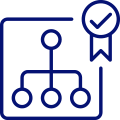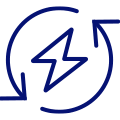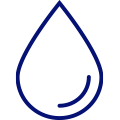Introduction


 Basis for preparation and presentation
Basis for preparation and presentation
Integrated Report 2021

The Ultra Group’s Integrated Report 2021 presents information on the Group’s main activities and performance during the year, as well as its strategic priorities and objectives for the future. It covers financial and operational dimensions, and environmental, social and governance (ESG) aspects.
In this edition of the Group’s report, the presentation has adhered to the main international reporting standards in order to demonstrate how the Group generates value for its strategic stakeholders, namely: shareholders, employees, resellers, customers, suppliers and the communities surrounding its operations. The report reflects the advances made by the Group in the application of integrated thinking, in line with the guidelines of the International Integrated Reporting Council (IIRC). The report demonstrates how the Ultra Group utilizes the various forms of capital on which its performance depends, and how this influences its results over time.
All of the topics and content required by the IIRC guidelines for integrated reporting have been covered, without any omissions. Furthermore, the Group’s performance has been presented according to the indicators and metrics recommended by the following international standards:
Global Reporting Initiative (GRI) Standards for Sustainability Reporting
Sustainability Accounting Standards Board (SASB)
International Financial Reporting Standards (IFRS)
Additionally, for the first time, and in order to reinforce the Group’s commitment to transparency, the content related to the GRI and IIRC methodologies was independently verified by the auditing company KPMG.
The information in the report refers to the period from January 1st to December 31st, 2021 and covers both the Holding and all the businesses controlled by the Group, namely: Ultragaz, Ultracargo, Oxiteno, Ipiranga and Extrafarma. Due to the Group’s ongoing divestment program, Oxiteno and Extrafarma have been considered, in a priority manner, only within the scope of the performance indicators. The context for the Group’s strategy and future prospects prioritizes the remaining businesses in its portfolio, namely: Ultragaz, Ultracargo and Ipiranga.
NOTES FOR READING THE REPORT
![]()
Refer to the respective indicators in the report content
 Indicates the sections where IIRC integrated reporting elements were adopted
Indicates the sections where IIRC integrated reporting elements were adopted
![]()
indicate the correlation between the report chapters and the various forms of capital
![]()
indicate the correlation between the report chapters and the United Nations Sustainable Development Goals (SDGs)
![]()
For questions and comments contact:
sustentabilidade@ultra.com.br
Notes:to facilitate the reading of the report, some of the decimal points of the GRI indicators have been rounded and standardized in each graph or table. This can generate minor differences between the items and the totals for each business and the Group as a whole.
As a rule, the GRI and SASB information for Oxiteno relates to its industrial units in Brazil, Mexico, Uruguay and the United States and its sales offices in Brazil and Mexico. Any exceptions have been mentioned in the relevant indicators.
The contents lists of the GRI and SASB indicators acessing here
For the first time, the Ultra Group’s integrated report has been independently verified by an auditing company.
Materiality matrix
For the first time, the Ultra Group’s integrated report has been independently verified by an
auditing company
![]()
In 2021, following the finalization of its sustainability strategy and its alignment to its business strategy, the Ultra Group updated its materiality matrix, which had been first prepared in 2019. The separate topics of data privacy and ethics in the previous version were incorporated in a more comprehensive topic entitled Governance and Integrity that takes an overarching perspective of the corporate governance structure.
It is also important to note that the process of preparing the original materiality matrix in 2019 was based on the analysis of: studies on sustainability issues; legislation and standards applicable to the Group; publications in the media; and industry studies for the relevant sectors of each business. In addition, the Ultra Group’s main stakeholder groups were consulted through an online survey, namely: senior management (the Board of Directors and the Ultrapar Executive Board); shareholders and investors; employees; regulatory and supervisory bodies; sectoral and civil society entities; and the media.
Each business has prepared its own materiality matrix, aligned to the Ultra Group’s strategic priorities, but which go deeper into specific topics, in line with each sector’s individual characteristics. They also take account of the level of maturity of each business in sustainability management.
MATERIAL TOPICS
![]()

Commitment to promote a business environment that is governed by ethics, compliance and transparency in relations with all stakeholders.

Participation in the long-term structural trends of the evolution of energy systems through the gradual replacement of fossil fuels by renewable energy sources, and in the production, distribution and consumption of energy.

Commitment to promote the efficient use of electricity, the reduction of water consumption and the appropriate management of waste disposal in its operations, including the prevention of soil and water contamination.

Transparent and socially inclusive actions in the communities surrounding its operations, aimed at improving communications and promoting local development.

Value chain management focused on the improvement of the ESG practices of suppliers, resellers and other business partners.

Commitment to the development of the Group’s human capital by ensuring equal opportunities for professional development, through the consolidation of an inclusive workplace environment.

Continuous improvement in health and safety management to ensure a safe and healthy workplace environment for employees, third parties and suppliers.